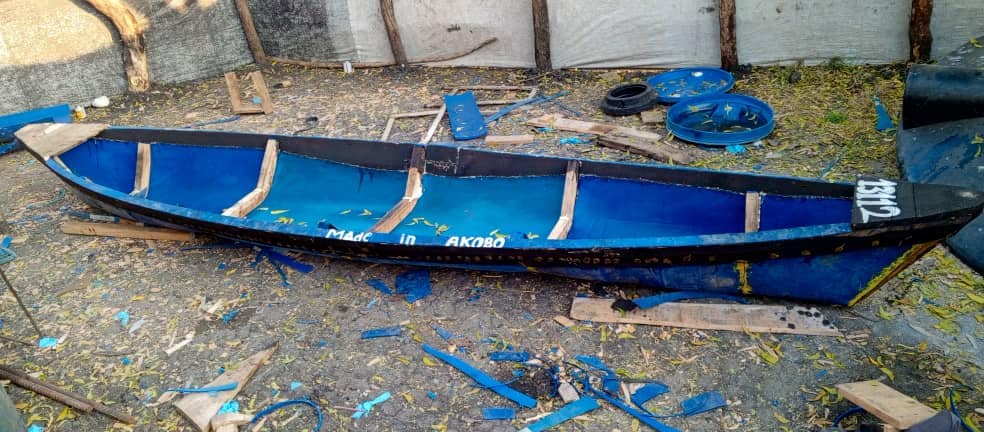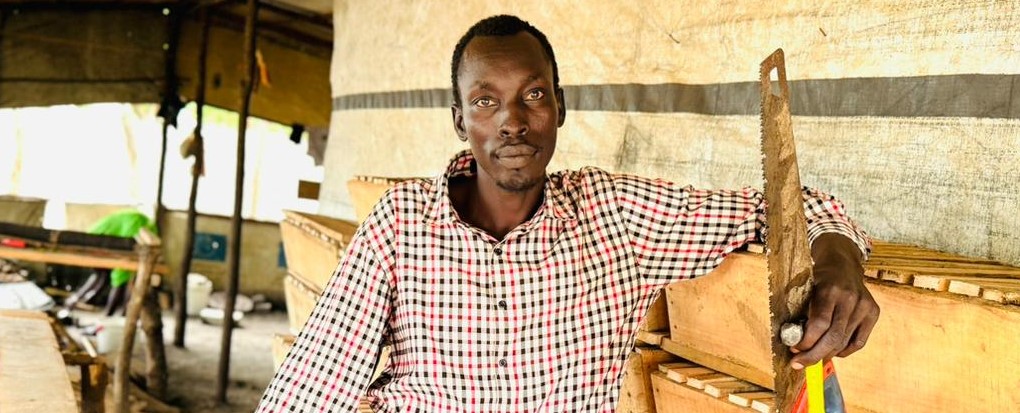In the heat of Akobo, a town in Jonglei State, the sound of sawing and hammering is more than just noise—it’s the sound of a future being built. It comes from a workshop where Ruot Yien Nyuon, a man who once dreamed of mending bodies as a medical doctor, now shapes wood. In doing so, he is reshaping lives.
His own life took an unplanned turn. Born in 1986 in Pieri, Uror County, Ruot was a promising student. He completed his primary education in Malakal, earned his Sudan Certificate in Khartoum in 2009 and realized a common dream by enrolling in medical school at the University of Upper Nile.
But a year in, the financial reality was as harsh as the Sudans’ sun. The tuition was too high. His family couldn’t afford it, and his father was unwilling to sell the family’s ancestral cows, a traditional form of wealth.
“I had to quit,” Ruot says, the memory no longer a source of pain but a point of departure.
For years, his path was uncertain. Then, in 2020, he found a new calling — not for the sick, but for his community. He attended a carpentry training program in Kosti, Sudan, mastering the craft of working with his hands.
He returned to South Sudan, not to Malakal, but to Akobo, a region in his Lou Nuer homeland where opportunity is often scarce. He launched a fishing business and began building the canoes that make it possible. He saw a need and filled it, first for himself, then for others. The fishing thrived, and the demand for his canoes grew.
Recognizing a greater opportunity, Ruot opened a canoe-making training center in 2025 with support from the USAID Shejeh Salam project, implemented by DT Global. His first class wasn’t in a formal schoolroom, but under the open sky, where he taught 20 youth from local cattle camps how to build and then how to fish.

Today, those 20 young men are no longer idle; they are self-employed fishermen. The success rippled outward. One of Ruot’s own students was recently contracted by Save the Children to train another group of youth.
But Ruot’s vision didn’t stop at the riverbank. Seeing the need to diversify livelihoods further, he is now pioneering a new venture: modern beehive production. He has already crafted 40 beehives, set to be distributed by a partner organization to introduce youth to beekeeping.
From 2020 to 2025, Ruot has been a quiet engine of change in Akobo. His work provides an alternative to cattle raiding, a persistent source of conflict, by offering tangible skills and sustainable income through fishing and, now, honey production.
Sitting beside freshly made beehives, Ruot reflects on his journey without a trace of bitterness.
“I am not discouraged by having dropped out of medical school,” he says, a calm confidence in his voice. “I know that with the skills I’ve learned in carpentry and fishing, I can earn as much as I would have as a medical doctor.”
His message to other young South Sudanese facing adversity is simple and profound.
“I urge all youth not to be discouraged by the challenges they face in life. There are many ways to kill a rat,” he says, invoking a local proverb about resourcefulness. “I now make a lot of money from fishing, canoe-making, and beehive production. If I want, I can invest in any business that will continue to elevate my status.”
He finishes with a declaration that echoes the newfound independence he has forged for himself and his students: “At this stage, I am no longer looking for employment. I am self-employed and proud of it.”
In Akobo, the doctor who never was is still healing, one canoe, one beehive, and one young person at a time.




